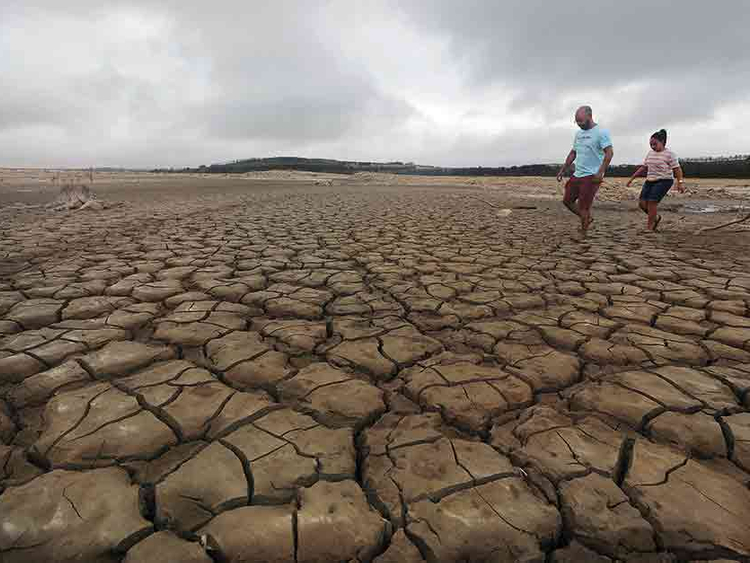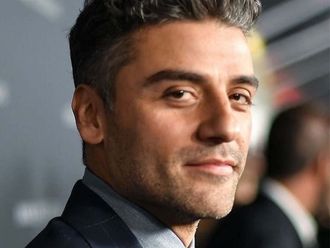Wedding planner Izandi Serdyn recalls how life has changed due to limited water resources after drought struck the city of Cape Town two years ago and the city was recently declared a natural disaster.
“When Day Zero — which is now expected to fall in 2019 — was announced in the media nobody knew the impact and so we emailed all our clients who were getting married. I actually lost two bookings about four weeks ago because of the uncertainty and we couldn’t give answers to our clients to tell them what’s happening.”
The drought has impacted Serdyn in many ways. She now bathes her two children in a bucket and uses any leftover water for what’s left of her garden.
 Izandi Serdyn, seen with her kids at home in Cape Town, uses recycled bath water for her garden
Izandi Serdyn, seen with her kids at home in Cape Town, uses recycled bath water for her garden
Food prices have increased slightly, and some families use a bespoke meal delivery service to avoid washing cooking vessels and dishes. In her line of work, florists now charge a water levy as water needs to be purchased for flower arrangements.
Despite these challenges, the city of Cape Town and its residents have retained some semblance of normalcy in their day-to-day lives, says Serdyn.
High water consumption
In contrast to Cape Town’s drastic measures to limit water use to 50 litres per person per day and the world average of 170 to 300 litres, the UAE, with its hyper-arid climate and scarce rainfall, has a shockingly high water consumption of 550 litres. Commenting on the figure provided by the Federal Electricity and Water Authority, Dr Kevin Winter at the University of Cape Town’s Future Water Institute says, “550 litres per person per day is certainly excessive and what people are doing with water is mind-boggling.”
Today the UAE has one of the lowest water availability per capita rates and is also one of the highest water consuming countries in the world.
“Moving forward, continued population, industry and hospitality growth will put even greater strain on the UAE’s limited water resources,” says Arjan Boogaards, Senior Vice-President and President of Middle East and Africa at Ecolab, a water and hygiene technology company.
“For example, it is expected that the demand for water in Abu Dhabi will increase to approximately 5,000 million litres by 2030.”
Boogaards points out that the UAE is now the world’s second largest user of water desalination technology, accounting for 14 per cent of all desalinated water produced globally. “Recently, Abu Dhabi completed the world’s largest reservoir of desalinated water in the Liwa, Al Dhadara region, which will provide one million people with 180 litres of water per day for up to 90 days. The desalination process is energy intensive, and these costs will soon be reflected in the country’s water tariff.”
To ensure they do not face the same predicament as Cape Town, regional governments need to look at a wide range of sources over the long term, Dr Winter says.
 Cape Town residents queue up for water as taps threaten to run dry
Cape Town residents queue up for water as taps threaten to run dry
“The UAE has been moving towards desalination, however more effort needs to be made to use treated effluent and inject treated effluent into sandy aquifers in order to recharge that water if we are starting to draw it over and over again from the ground.”
He also suggests that desalination plants extract resources such as precious metals and other compounds such as ammonia from the salt and brine after water is purified as this is usually pumped back into sea with harmful long-term consequences.
“A good example comes from Perth, Australia where they are starting to extract lithium from the sea water.”
“For instance, there’s perhaps nitrogen and ammonia that’s available from the salt and brine that results after the desalination process.” In addition, Dr Winter believes one of the solutions to water security in the UAE is continuous monitoring systems to assess the threshold for water extraction. “You’ve got to set the benchmarks and you’ve got to have regulation with severe fines when people start to over extract from water resources.”
Providing solutions
According to Boogaards, in the UAE almost 60 per cent of industries, including hotels, district cooling, steel, power and chemicals are beginning to see water
scarcity have a negative impact on revenue due to the large amounts of water consumed. “When industries are unable to detect problems in membrane technology systems in their early stages, it leads to performance issues, waste of water, and energy.”
Ecolab provides technologies to monitor water quality and quickly adjust chemical levels to maintain the ideal water quality. Safdar Badami, Managing Director at construction chemicals manufacturer Al Muqarram Industries, says one of the greatest water security challenges facing the nation is managing demand from the agricultural and industrial sectors. “Their use needs to be tailored to include water conservation measures. This will help ease the supply to cater to growing urban demand.
“With limited rainfall and no substantial natural water bodies to sustain the reion, our groundwater levels are also fast diminishing and we need to focus on other ways to safeguard this precious resource.”
Back in Cape Town, Serdyn believes the city has turned a corner with recent rainfall and the drastic water cutbacks residents made. She explains that
the Stellenbosch and Franschhoek areas have enough underground water and several properties have sunk their own boreholes. Business has,
for the most part, gone on as normal and Day Zero has been moved forward.
“Hopefully it turns out well,” says Serdyn. “The situation is not ideal, but water is a precious resource and we need to take better care of it. No one ever thought Cape Town would go through this.”













